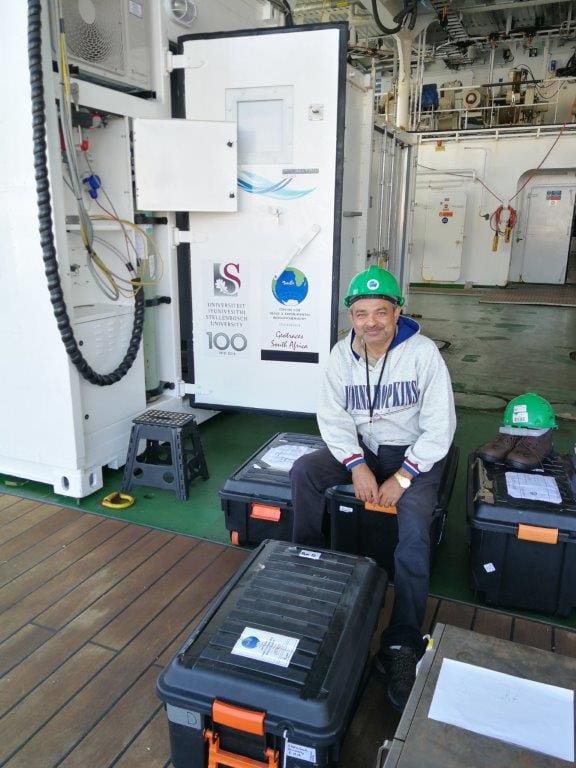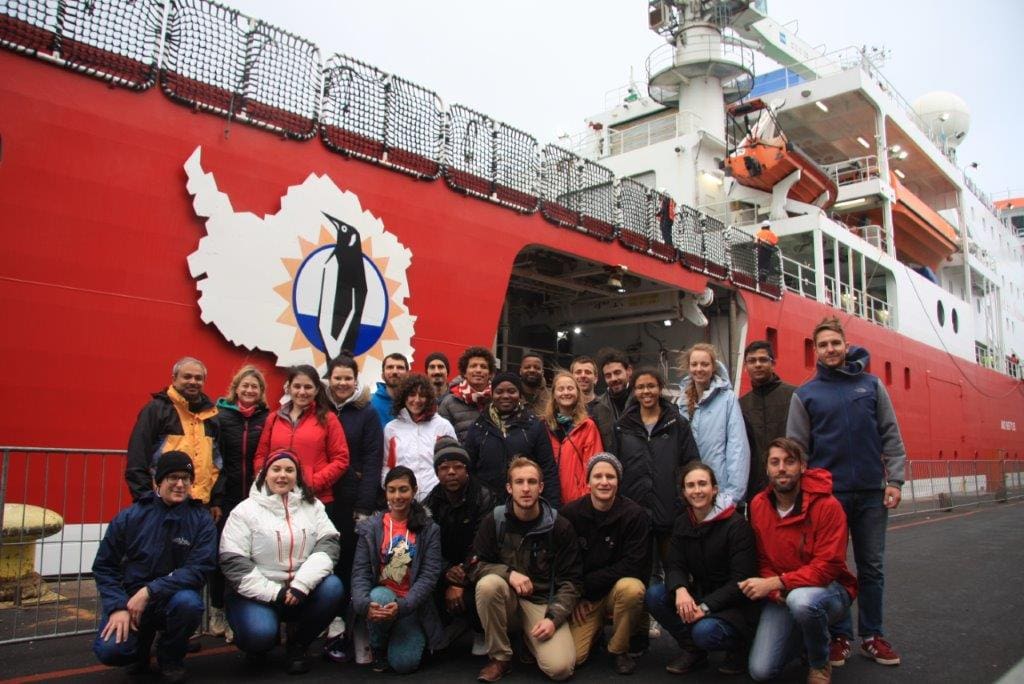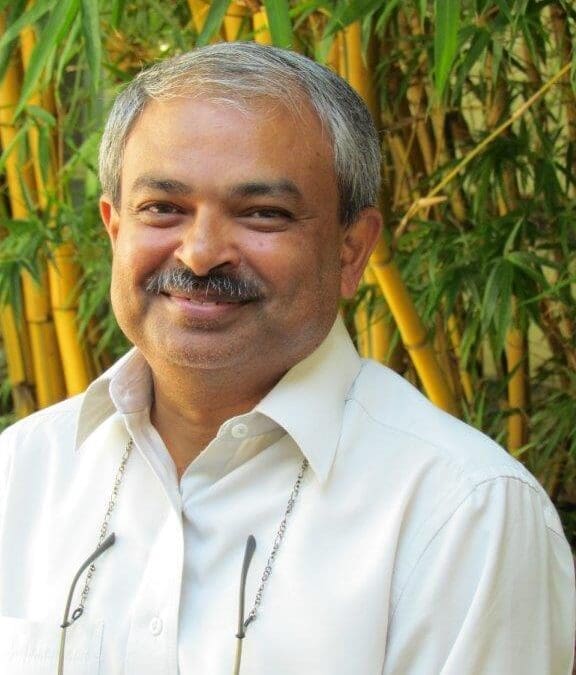
 Alakendra N Roychoudhury (Roy) grew up in India where he completed his post-graduate degree, Master of Science and Technology, in the field of Applied Geology from the Indian School of Mines. My career in Geology started because of my intense love for the outdoors and travelling to places where mainstream people don’t go. Believe it or not, one of the reasons going into geology was also to avoid Mathematics at college. I wouldn’t recommend it though, as I had to learn all the mathematics while pursuing my PhD in Marine Biogeochemistry at Georgia Institute of Technology, Atlanta, USA. You cannot be a good scientist without having a good grasp of mathematical principals. After finishing my doctoral degree, I joined as a lecturer at Northwestern University, Chicago, USA and eventually moved to University of Cape Town, South Africa as a senior lecturer. At present I am a Professor of Marine and Environmental Biogeochemistry at Stellenbosch University where I also acted as the Head of the Department of Earth Sciences in the past. As for Southern Ocean research, I developed and expanded the research program and research facilities in South Africa in open ocean trace metal biogeochemistry and currently head the TracEx research group at Stellenbosch University.
Alakendra N Roychoudhury (Roy) grew up in India where he completed his post-graduate degree, Master of Science and Technology, in the field of Applied Geology from the Indian School of Mines. My career in Geology started because of my intense love for the outdoors and travelling to places where mainstream people don’t go. Believe it or not, one of the reasons going into geology was also to avoid Mathematics at college. I wouldn’t recommend it though, as I had to learn all the mathematics while pursuing my PhD in Marine Biogeochemistry at Georgia Institute of Technology, Atlanta, USA. You cannot be a good scientist without having a good grasp of mathematical principals. After finishing my doctoral degree, I joined as a lecturer at Northwestern University, Chicago, USA and eventually moved to University of Cape Town, South Africa as a senior lecturer. At present I am a Professor of Marine and Environmental Biogeochemistry at Stellenbosch University where I also acted as the Head of the Department of Earth Sciences in the past. As for Southern Ocean research, I developed and expanded the research program and research facilities in South Africa in open ocean trace metal biogeochemistry and currently head the TracEx research group at Stellenbosch University.


 Why you love your career in science
Why you love your career in science

 Choosing a career in Science is not easy. There is always a pressure to go into fields where there are prospects of high paying jobs. One can survive in science only if they love what they are doing. My love developed from the sense of adventure that came with scientific research and travelling for fieldwork in remote places.
Choosing a career in Science is not easy. There is always a pressure to go into fields where there are prospects of high paying jobs. One can survive in science only if they love what they are doing. My love developed from the sense of adventure that came with scientific research and travelling for fieldwork in remote places.  Thanks to Science, I have been fortunate enough to touch all of the seven continents and the seven seas. Science constantly provides you with new opportunities and challenges that keeps the monotony at bay, which I think was the most critical for me. I will never survive in a suit and tie doing a 9 to 5 job. What excites me most is the realization that the deeper you investigate the more questions emerge and at some point, different fields of science seem to merge in developing a better understanding of the natural processes. A big part of my love for science is also teaching it because I like to see the same excitement in the eyes of my student for a research field that has consumed the better part of my life.
Thanks to Science, I have been fortunate enough to touch all of the seven continents and the seven seas. Science constantly provides you with new opportunities and challenges that keeps the monotony at bay, which I think was the most critical for me. I will never survive in a suit and tie doing a 9 to 5 job. What excites me most is the realization that the deeper you investigate the more questions emerge and at some point, different fields of science seem to merge in developing a better understanding of the natural processes. A big part of my love for science is also teaching it because I like to see the same excitement in the eyes of my student for a research field that has consumed the better part of my life.
Message to future scientists and researchers:


 (Above: Images of Science Cruises in the Southern Ocean on the S.A. Agulhas II with Susan Fietz colleague and students) If you don’t ask the question “Why?” all the time until you run out of answers, you cannot be a scientist. Science thrives on curiosity and there is a lot to be curious about when it comes to the oceans. Oceans are truly the last frontier because we know more about space than oceans. Large parts of the oceans are unexplored and there are huge opportunities for one to make their mark. Marine chemistry or biogeochemistry in South Africa is highly underdeveloped, but this is a field that can answer the most critical questions such as climate change and anthropogenic influences on ocean processes, on which survival of the living planet depends. To be a good researcher in ocean sciences, you will have to have a good understanding of the principles and advanced knowledge of chemistry, physics, biology and mathematics and you will need an open mind to take on the teaching of these different fields while pursuing your focused research.
(Above: Images of Science Cruises in the Southern Ocean on the S.A. Agulhas II with Susan Fietz colleague and students) If you don’t ask the question “Why?” all the time until you run out of answers, you cannot be a scientist. Science thrives on curiosity and there is a lot to be curious about when it comes to the oceans. Oceans are truly the last frontier because we know more about space than oceans. Large parts of the oceans are unexplored and there are huge opportunities for one to make their mark. Marine chemistry or biogeochemistry in South Africa is highly underdeveloped, but this is a field that can answer the most critical questions such as climate change and anthropogenic influences on ocean processes, on which survival of the living planet depends. To be a good researcher in ocean sciences, you will have to have a good understanding of the principles and advanced knowledge of chemistry, physics, biology and mathematics and you will need an open mind to take on the teaching of these different fields while pursuing your focused research.
Links to read more about Prof Roy and his work
https://scholar.google.co.za/citations?user=kpXyzCYAAAAJ&hl=en
https://tracexsite.wordpress.com
https://www.whalesandclimate.org
Like on Facebook: https://www.facebook.com/TracEx
Follow on Twitter: @geotracesSA
Listen to a media interview: https://youtu.be/1YUUpD87DBg
Text and images supplied by Roy Alakendra N Roychoudhury







